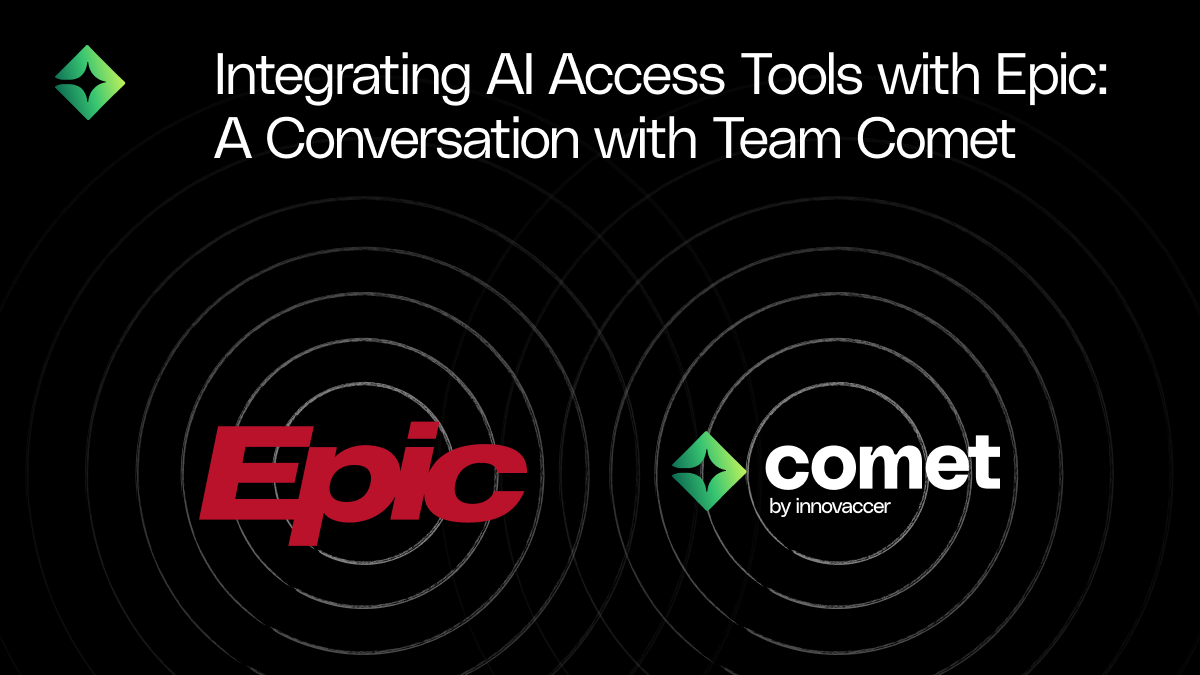Unlocking the Potential of eCQM Reporting: ACOs' Path to Enhanced Performance

The CMS announcement concerning new eCQM reporting has enlivened the ACO community with both excitement and fruitful discussion. There's uncertainty about the scope, execution, and timeline, but this circumstance also unveils the chance to construct a data infrastructure, capable of significantly boosting the ability of ACOs to congregate data and enrich their analytics abilities. This not only empowers ACOs to fine-tune their value-based care contracts but also ushers in vital capabilities - such as population health management, risk stratification, decision support at critical care junctures, persistent care across diverse settings and providers, and sturdy data analysis. The enforced eCQM reporting is primed to establish an elevated quality-care benchmark for all patients, not only those who are Medicare beneficiaries.
How this shift is affecting ACOs’ reporting measures and calculating performance
In the APM Performance Pathway (APP)—including those within the Shared Savings program—an APM Entity's overarching performance hinges on scores from three separate categories: Quality (50%), Promoting Interoperability (30%), and Improvement Activities (20%). For the sake of our discussion, let's delve into how the Quality category scores are computed. For the reporting years 2023 and 2024, ACOs have the option to relay quality data through one of these avenues:
- Report six measures—comprising three eCQMs, one CAHPS for MIPS Survey measure, and two administrative claims-based measures, or
- Report thirteen measures—ten CMS Web Interface measures, a singular CAHPS for MIPS Survey measure, and two administrative claims-based measures.
Still, after the performance year 2024, CMS will terminate the Web Interface reporting, and ACOs will then be obliged to report the three eCQMs.
The 3 eCQMs encompass:
- #1 - Diabetes: Hemoglobin A1c (HbA1c) poor control
- #134 - Preventive care and screening: Screening for depression and follow-up plan
- #236 - Controlling High Blood Pressure
ACOs stand to score between three to ten points for each measure meeting data completeness (submitted data for a minimum of 70% of eligible patients/instances according to the denominator) and case minimum requirements (at least 20 cases). These scores will be determined by juxtaposing measure performance against established benchmarks. These benchmarks, however, will differ depending on the selected reporting method (eCQMs versus MIPS CQMs). Regarding the Shared Savings Program quality performance standard, CMS has included an incentive to report the 3 eCQMs for performance years 2022 and 2023:
For the years 2022 and 2023, ACOs meet the quality performance standard if:
- The ACO garners a quality performance score that's equal or superior to the 30th percentile across all MIPS quality performance category scores, or
- The ACO reports the three eCQM/MIPS CQM measures, successfully scores equal or higher than the 10th percentile of the performance benchmark on, at least, one outcome measure, and achieves a quality performance score that's equal or exceeds the 30th percentile of the performance benchmark on, at least, one other measure.
From 2024 and the years following, an ACO will fulfill the quality performance standard if it accomplishes a quality performance score that is equal to or surpassing the 40th percentile across all MIPS quality performance category scores.
What this shift means for ACOs
As eCQM/MIPS CQM reporting becomes mandatory from 2025, ACOs must analyze 100% of patients and report on 70% of all patients who fit the measuring criteria, irrespective of the payer. This situation contrasts with the present requirement where CMS mandates all ACOs and groups—no matter the size—to report a minimum of 248 patients selected from a CMS sample of 616 Medicare beneficiaries for each measure.
This change signifies that ACOs need to compile data from numerous EHRs employed by distinct hospitals, physician groups, and care settings. Currently, 9% of ACOs utilize a single EHR, while 77% of them manage six or more EHRs, according to the American Journal of Managed Care. Besides accumulating data from diverse sources, they'll also need to ensure precise patient-matching data. CMS will require ACOs to deduplicate patient data across providers and suppliers when submitting their reports. These demands strike at the core issues with EHRs and interoperability. Initially designed as billing systems, EHRs lack the necessary formatting capabilities for data sharing and don't readily support quality measures reporting or effortless data aggregation, normalization, and deduplication.
Let's explore how ACOs can tackle this challenge. For providers responsible for assessing quality information across their entire patient population and reporting on 70% of those patients, it's vital to connect all systems using a data and analytics platform. By doing so, they'll establish a unified (longitudinal) patient record as a single source of truth for each patient's clinical information. This approach eliminates data ambiguity and the need for extensive (and costly) manual processes, streamlining the collection and reporting of patient information. However, this capability is only feasible by merging data from disparate EHRs and other sources.
How can Innovaccer help?
Innovaccer's eCQM reporting solution tackles the aforementioned challenges, enabling ACOs to efficiently collect data, assess measures, produce output in the required format, and submit quality measures. Plus, our Best in KLAS platform enables users to track the advancement of quality measures throughout the year and leverage the actionable insights provided by the platform to optimize performance. Imagine having these capabilities:
- Data Aggregation and Import
The platform ingests data from EMRs through direct integration. It also imports QRDA-I from practice EMRs that haven't been integrated with the platform.
- De-duplication and Standardization
Our proprietary Enterprise Master Patient Index (EMPI) assignment algorithm ensures each patient is assigned a unique identifier. This is irrespective of whether the patient's records come from diverse sources.
- eCQM Compute Engine
With patient data now residing in our Unified Data Model, the necessary set of three eCQM measures can be executed on the entire population set.
- Reporting UI
Dashboards can be published monthly or quarterly for effective performance tracking, patient-level detail viewing, and acting on insights generated by the platform.
- Export
The measures' output is exported in QRDA III format, enabling organizations to submit the files to CMS directly.

Our customers are already transitioning towards eCQM by using the Innovaccer platform. Here are several reasons why:
Following CMS's Path towards EMRs and Digitization
As CMS is pushing for quality measurement advancement by transitioning all quality measures used in its reporting programs to digital quality measures (dQMs)—with eCQMs being a subset of dQMs—the time is ripe to switch from Web Interface reporting.
Using Initial Incentives and Trial Periods
ACOs opting for eCQM reporting only need to report on 3 eCQMs in 2023 and 2024, simplifying the adherence to quality performance standards compared to the requirement of 10 measures in the case of Web interface reporting.
Promoting Interoperability
As the requirements mandate reporting on 70% of the population, eCQMs will help motivate providers toward broader adoption of EMRs.
Gaining a Holistic View of Patient Data
With ACOs consisting of several independent practices using different EHRs, the move to eCQMs will grant ACOs a comprehensive view of the patient by aggregating and deduplicating data from multiple sources.
Interested in learning more about eCQMs and Innovaccer’s eCQM capabilities? Schedule a demo today.


.png)



.png)



.avif)









.svg)
.svg)

.svg)

